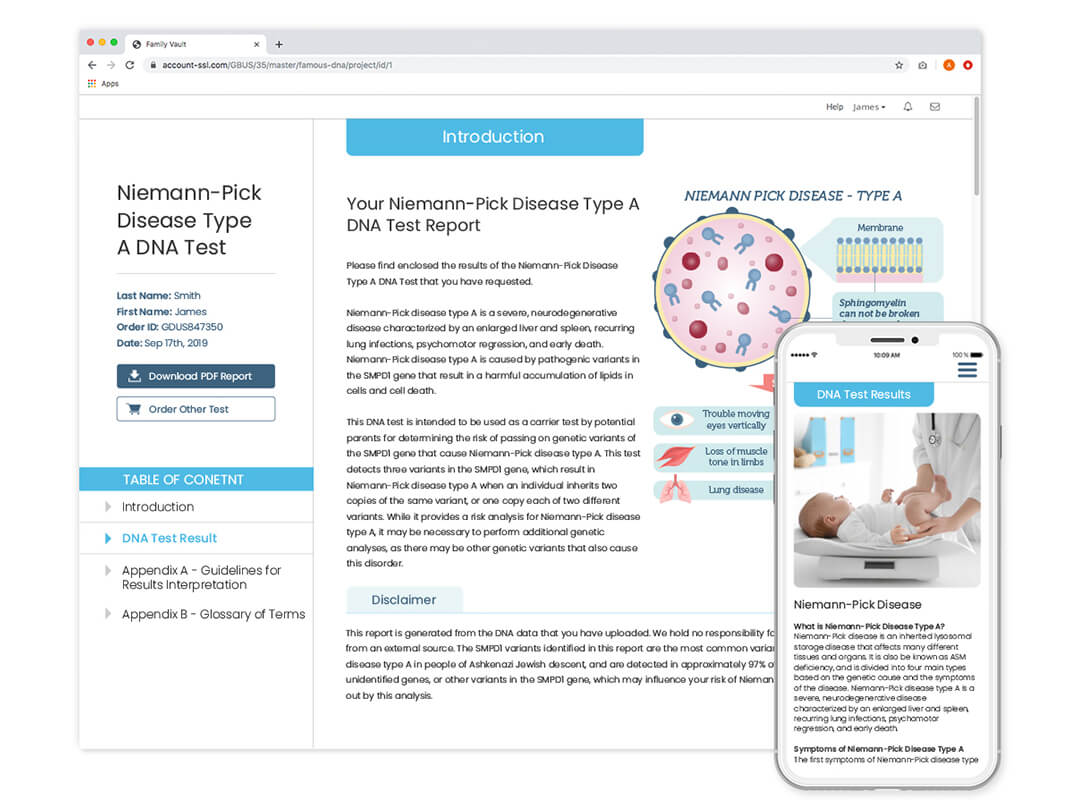Niemann-Pick Disease Type A DNA Test
Are you a genetic carrier for Niemann-Pick disease type A? Find out with this DNA Test.
- Detects three SMPD variants which cause Niemann-Pick disease type A
- Characterized by the accumulation of the lipid sphingomyelin in cells
- Carrier screening test intended for couples who are planning to become pregnant
- 100% private and confidential online results
Already have DNA markers? Sign in and upload your data to view results.
Need to take the DNA Test? Order our easy-to-use swab kit.





